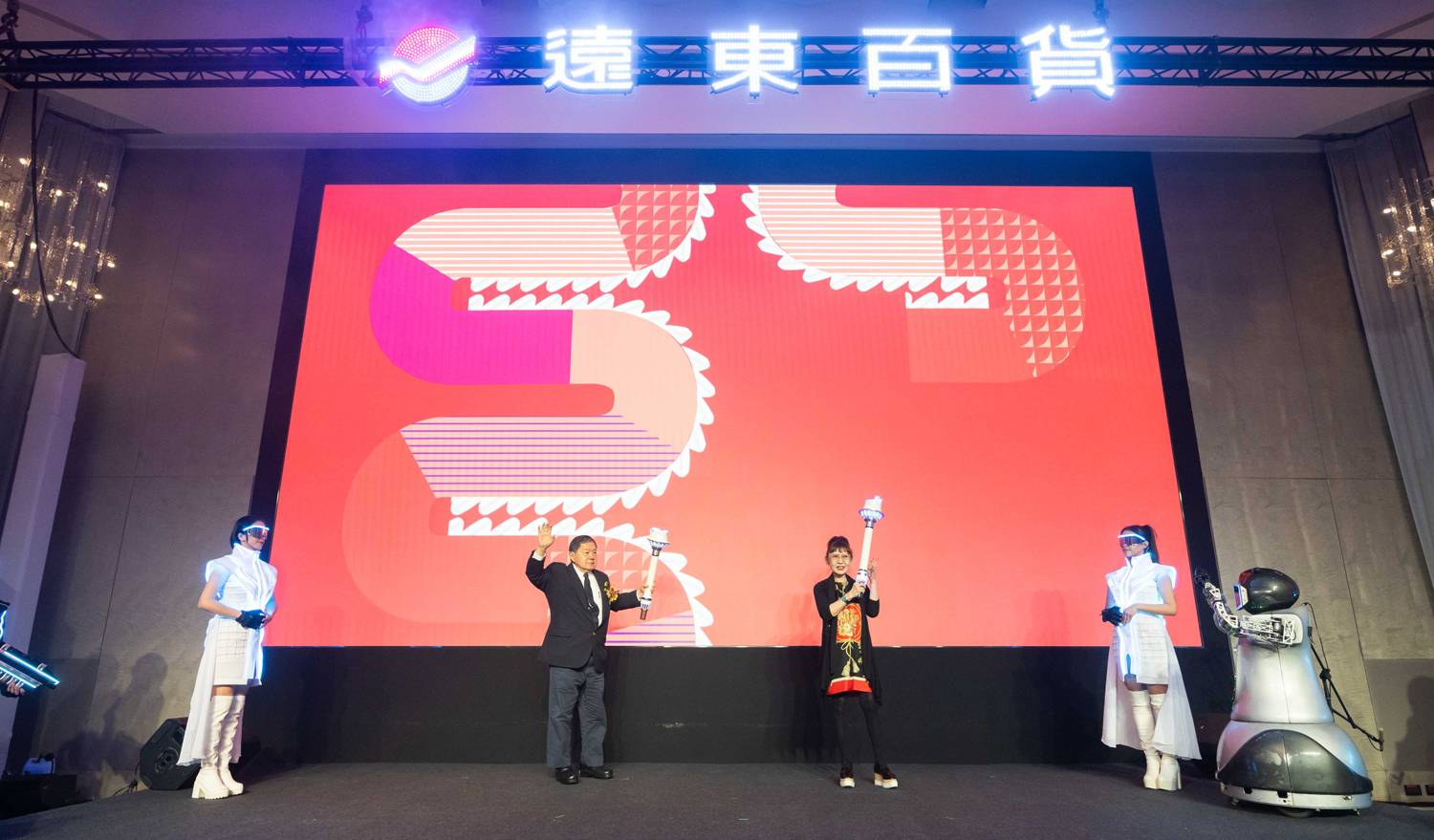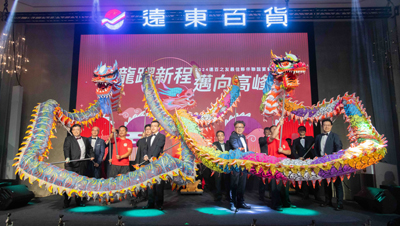12.2024 Leader's Remarks
Leading the future of retail
Far Eastern Group Chairman's Office / Yang Yasen


 Douglas Hsu provided insightful insights on the future development of the retail industry at the Far Eastern Department Stores Manufacturers' Association in 2024, emphasizing the challenges and opportunities of the current business environment and outlining a hopeful blueprint for the attendees.
Douglas Hsu provided insightful insights on the future development of the retail industry at the Far Eastern Department Stores Manufacturers' Association in 2024, emphasizing the challenges and opportunities of the current business environment and outlining a hopeful blueprint for the attendees. The retail environment is constantly evolving at an unprecedented pace, and retailers must respond flexibly to changes in consumer behavior, technological advancements, and competitive pressures. Especially in the face of the rise of e-commerce and changes in customer expectations, traditional retailers must rethink their strategies, actively embrace digitization, and regard "enhancing customer experience" as the most important weapon, using data analysis to provide personalized products and promote seamless omni channel interaction, creating eye-catching value propositions. In addition, as consumers increasingly value brand values and sustainability, adaptability and innovation will be key to the thriving future of retail in this dynamic environment.
The retail environment is constantly evolving at an unprecedented pace, and retailers must respond flexibly to changes in consumer behavior, technological advancements, and competitive pressures. Especially in the face of the rise of e-commerce and changes in customer expectations, traditional retailers must rethink their strategies, actively embrace digitization, and regard "enhancing customer experience" as the most important weapon, using data analysis to provide personalized products and promote seamless omni channel interaction, creating eye-catching value propositions. In addition, as consumers increasingly value brand values and sustainability, adaptability and innovation will be key to the thriving future of retail in this dynamic environment.1、 Outlook for Business Environment
In the current global economic environment, uncertainty still exists. Although advanced economies such as the United States, Japan, Germany, and France showed signs of recovery in the second quarter, giving a glimmer of hope for economic development, there is a clear divergence in the pace of recovery among emerging economies in the Asia Pacific region: India relies on domestic demand to drive growth, while China continues to face challenges. With the easing of global inflation and the recovery of trade, the economic growth forecast is between 2.4% and 3.2%.
As for the development of Taiwan's economic situation, according to predictions from major global institutions, the estimated economic growth rate for 2024 is 3.5%. Among them, industrial production and exports are the main growth drivers, while private consumption and the price index remain stable. However, the growth momentum of the retail industry has declined compared to last year.
The current global economy is facing multiple risks, particularly the impact of geopolitics, climate change, and the US election results. The escalation of geopolitical conflicts in the Middle East not only exacerbates regional instability, but may also have an impact on the global energy market, further pushing up oil prices and affecting economic growth. Furthermore, the frequent occurrence of extreme weather events poses a threat to property damage and supply chain stability, and businesses face greater operational risks. In addition, the uncertainty of the US election results may also affect the confidence of the international market, changing global trade policies and investment environment. In this context, we must strengthen risk management to address potential economic challenges.
Looking ahead to 2025, the global economy has the opportunity to gradually recover and grow amidst multiple challenges, and with the recovery of consumer demand in various countries, it will also drive the recovery of the service and manufacturing industries.
 2、 The challenges faced by the retail industry
2、 The challenges faced by the retail industryIn this economic context, the retail industry still faces multiple challenges such as the pressure of digital transformation, supply chain disruptions, increased customer expectations, intensified competitive environment, and environmental sustainability. With changes in consumer behavior, retailers must quickly adapt to digitization and invest more resources to meet consumers' demand for personalized and instant services, otherwise they will face the risk of customer churn and loss of market share.
In the future retail industry, AI digitization, experiential retail, and sustainable development will become the three most important priorities.
1. AI digitization: The application of AI technology is redefining the operation of the retail industry. Through inventory management and demand forecasting, retailers can more accurately grasp market dynamics, reduce inventory backlog and stockouts; The introduction of automatic pricing and smart tags makes price adjustments more flexible to quickly respond to market changes. At the same time, customer traffic analysis and personalized recommendation systems can enhance the shopping experience, allowing each customer to enjoy tailored services. As for the use of chatbots and automated checkout counters, it further improves the efficiency of services, allowing customers to feel convenient and smooth during the shopping process.
2. Experiential retail: Experiential retail is not only about selling products, but also about creating unique shopping experiences. Brands such as Canada Goose's Cold Room and Starbucks Reserve Roastery enhance brand loyalty by creating interactive environments that involve customers in product creation and experience. For example, Tiffany&Co. Style Studio offers personalized customization services that allow customers to express themselves during the creative process, not only enhancing engagement but also making the brand image more distinct. Louis Vuitton Maison has designed the store as a social space, promoting interaction and sharing among customers, further enhancing the brand's sense of community.
3. Sustainable development: With the increasing awareness of environmental protection, consumers are paying more and more attention to the environmental protection of brands, making "sustainable development" an important issue in the retail industry. Retailers need to seek environmentally friendly operating methods, such as using eco-friendly packaging, optimizing supply chains, and promoting green products. This can not only reduce operating costs and enhance brand image, but also attract more consumers who are concerned about environmental protection. By implementing energy-saving measures and promoting the use of renewable energy, retailers can amplify economic benefits while reducing environmental impact.
epilogue
As retail anthropologist Paco Underhill once said, "Retail is no longer just about selling products, but creating experiences." In the future retail industry, brands must constantly innovate and adapt to meet challenges and seize opportunities. Through the empowerment of AI technology, the promotion of experiential retail, and the implementation of sustainable development, they can stand undefeated in the ever-changing market and create more valuable customer experiences.
#




















